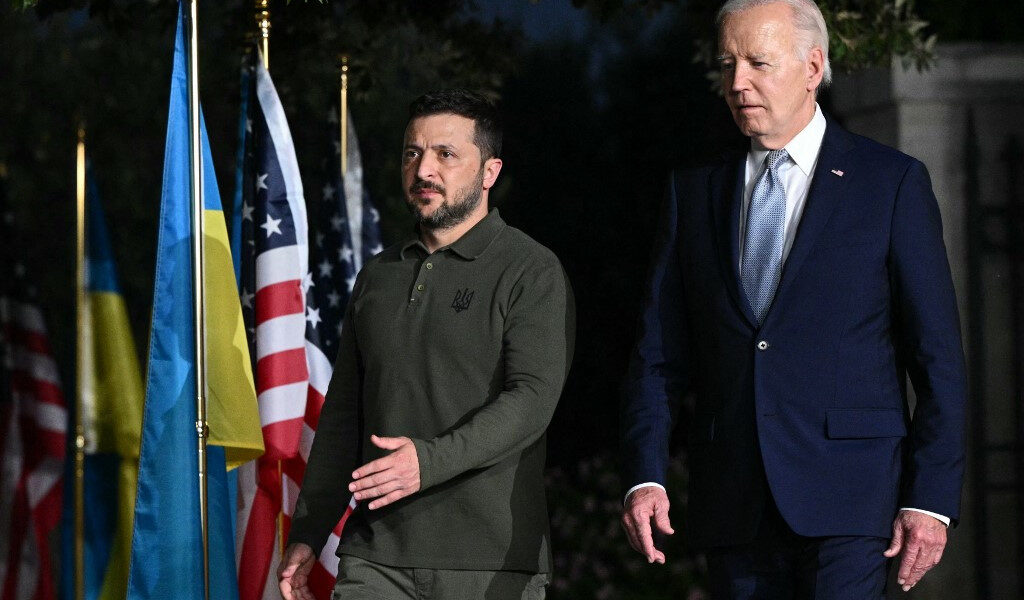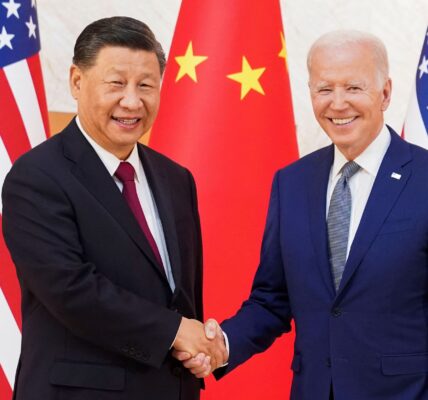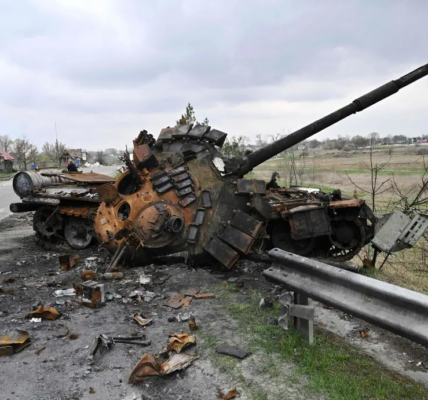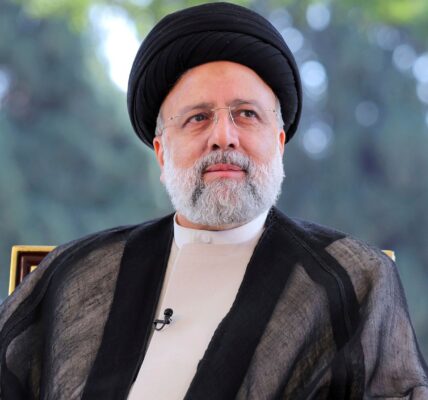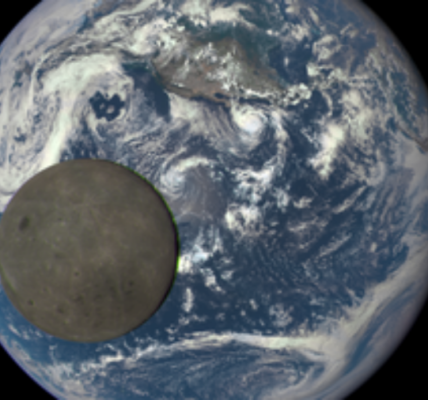Ukraine’s path to Nato membership is “irreversible”.
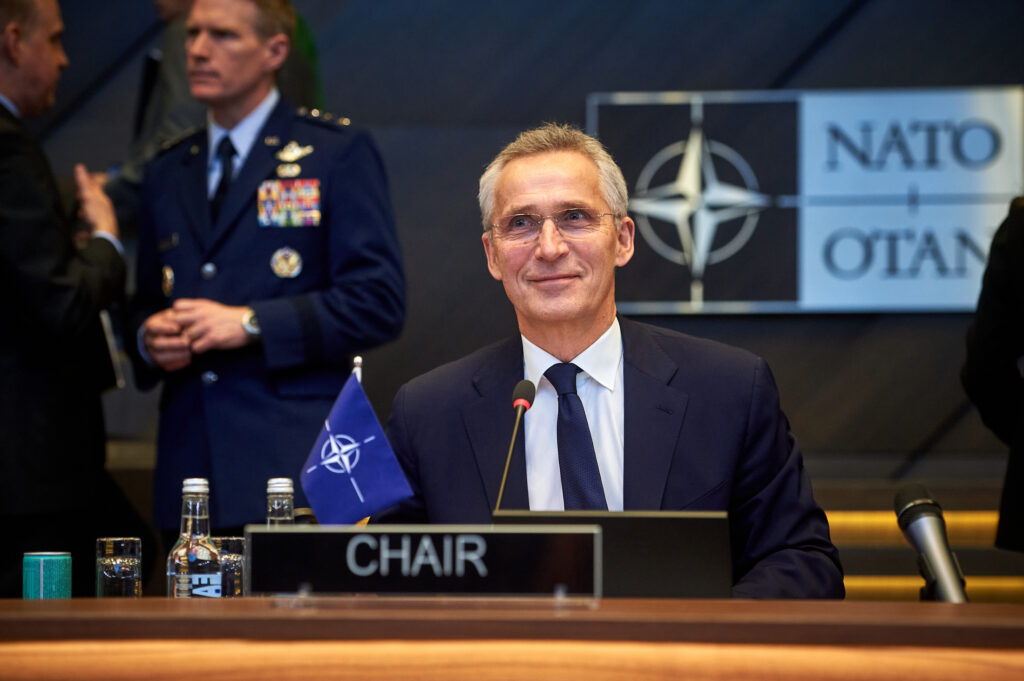
Nato members meeting at the 75th anniversary of the alliance have pledged their support for an “irreversible path” to future membership for Ukraine.
While a formal timeline for it to join the military organisation was not agreed at a summit in Washington DC, the military alliance’s 32 members said they had “unwavering” support for Ukraine’s war effort.
Although a raft of new measures supporting Ukraine were announced, the summit was overshadowed by President Joe Biden’s fitness for office.
The US President has been under pressure over his future after the disastrous debate with Donald Trump two weeks ago.
But in an hour-long session with journalists to mark the end of a Nato conference, Mr Biden, 81, confused his Republican opponent with Kamala Harris, having earlier introduced President Zelensky of Ukraine as “President Putin”.
Western leaders who attended the conference were also repeatedly asked about President’s Biden’s mental fitness as leader of the West’s most powerful country.
Despite the clamour over Mr Biden’s future Nato also announced further integration with Ukraine’s military and members have committed €40bn ($43.3bn, £33.7bn) in aid in the next year, including F-16 fighter jets and air defence support.
The bloc’s Secretary-General Jens Stoltenberg said: “Support to Ukraine is not charity – it is in our own security interest.”
The ongoing invasion of Ukraine was top of the agenda at Nato’s summit, and a declaration agreed by all members said Russia “remains the most significant and direct threat” to security.
US Secretary of State Antony Blinken also confirmed US-built F-16 jets are in the process of being transferred to Ukraine from Denmark and the Netherlands.
It will be the first time Ukraine has received the advanced aircraft, something which Kyiv has long called for.
The first of the 85 combat aircraft that have been committed to Ukraine will be flying sorties this summer, according to a statement by the Dutch and Danish governments.
The F-16 Fighting Falcon is a compact agile, multi-role fighter aircraft and, according to the Pentagon, provides a relatively low-cost, high-performance weapon system for the United States and allied nations.
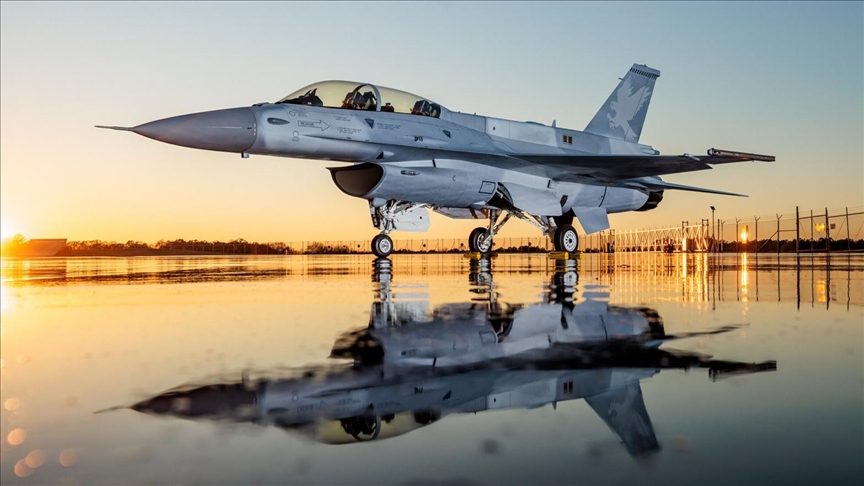
Nato members agreed to set up a new unit to coordinate military aid and training for the Ukrainian army as part of measures designed to deepen ties between the alliance and Ukraine.
The joint statement said these measures, combined with aid commitments from individual members, “constitute a bridge to Ukraine’s membership in Nato”.
The statement said Ukraine had made “concrete progress” on “required democratic, economic, and security reforms” in recent months – but that a formal membership invitation would only be extended when “conditions are met”.
“As Ukraine continues this vital work, we will continue to support it on its irreversible path to full Euro-Atlantic integration, including Nato membership,” the statement added.
It also accused China of being a “decisive enabler” for Russia’s war against Ukraine, in some of its harshest remarks yet on Beijing’s involvement.
The statement prompted an angry response from Beijing’s mission to the EU, which called on Nato to “stop hyping up the so-called China threat, and provoking confrontation and rivalry”.
China’s foreign ministry spokesperson, Lin Jian, said on Thursday that the alliance had been smearing his country with “fabricated disinformation”.
China has also called on Nato to stay out of the Asia-Pacific, saying that the alliance’s efforts to strengthen military and security ties with China’s neighbours were undermining the country’s interests, as well as peace and stability in the region.
The comments come as Beijing holds military exercises with Belarus, the country that Russian President Vladimir Putin used as a springboard for his invasion of Ukraine in 2022.
President Zelensky was invited to the Nato summit and had meetings with world leaders, including his first with Sir Keir Starmer since he became prime minister of the United Kingdom.
Sir Keir told Mr Zelensky there would be “no change in support” for Ukraine’s war effort despite there being a new government in London.
Mr Zelensky also met US politicians from both the Democrat and Republican parties, a move designed to shore up cross-party support for Ukraine after a stand-off in Congress earlier this year saw a large military aid package delayed for several months.
Nato leaders had hoped this week’s summit would provide an opportunity to present a united front on Ukraine after modest Russian gains on the battlefield in recent months.
However, there may be some disappointment in Kyiv that there was no clear public indication as to how long it would be until Ukraine was offered full membership.
The summit – which marked the 75-year anniversary of the alliance’s foundation – came months ahead of an election which could see Donald Trump, a Nato critic, return to the White House, and amid political troubles for US President Joe Biden.
As Mr Biden met other Nato leaders on Wednesday, some influential Democrats publicly called for him to quit the race over fears he is too old to perform against Mr Trump, 78, in what is likely to be a closely fought campaign.
Mr Biden used the summit to reaffirm his support for Ukraine and call for more defence investment from other members which have lagged behind on spending.
He said Russia was on a “wartime footing” in terms of defence production with support from China, North Korea and Iran – and leaders “cannot allow the alliance to fall behind”.
“We can and will defend every inch of Nato territory”, the president added.

